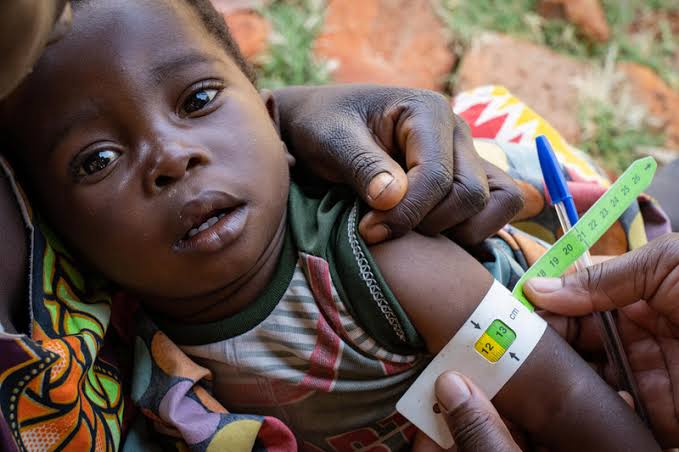Health
Nigeria ranks second in global ranking on malnourished-children
 The United Nations Children’s Fund (UNICEF) has called on governments at all levels, relevant stakeholders to prioritise the nutrition of Nigerian Children to move the nation foreard.
The United Nations Children’s Fund (UNICEF) has called on governments at all levels, relevant stakeholders to prioritise the nutrition of Nigerian Children to move the nation foreard.
UNICEF Nutrition Officer, Ms Nkeiru Enwelum, stated this during her presentation titled “Nutrition Situation in Nigeria: An Overview of Malnutrition in Nigeria and It’s Impact on Children”, at a two-day media dialogue on ‘Nutrition Financing in Nigeria, in Port Harcourt, adding that increase in budgeting for nutrition would reverse the malnutrition trend among Nigerian children.
Citing the National Demographic and Health Survey 2018, where it was said that about 12 million out of the 35 million under-five children in Nigeria were stunted due to malnutrition, Enwelum explained that more funding is required to help carry out sensitisation and advocacy campaigns in remote areas, as well as provide succour for children confronted with severe malnutrition in the country.
She also said that one in every three Nigerian children was suffering from stunting, while listimg forms of malnutrition to include acute malnutrition, severe wasting, stunting and obesity.
She described stunting to be a form of malnutrition which occurs when a child has low height for his age and stunting as a form of malnutrition referred to as chronic malnutrition because it happens over a long period of time.
She added that the effect of stunting could contribute to developmental delays and impair cognitive development.
The nutrition officer further said malnutrition in children could affect their performance and productivity in school till adulthood. This is as she said that Nigeria ranks first in Africa on data on malnourished children and second in the world.
She also said that about one million people suffer from acute food insecurity, while about 17.7 million people are hungry in Nigeria.
“The states with the highest number of people suffering from food insecurity in Nigeria are Kano and Lagos.
“In spite of the fact that Kano, Borno, Katsina and Lagos rank high in the food insecurity ladder, malnutrition is wide spread in the country, affecting people living in other parts of the country.
“Some of the diseases or resultant body malfunctions arising from malnutrition are micro nutrient deficiency, anaemia, ricket and vitamin A deficiency.”
Enwelum said that emphasis must be placed on implementing malnutrition prevention, interventions and approaches if nutrition issues must be addressed.
She also advocated for good food for children and access to all necessary food supplements such as vitamin A supplementation, adding that preventing malnutrition was cheaper than treating malnutrition.
According to her, government needs to implement a multi-sectoral action to ensure that all the sectors and stakeholders work together to deliver on all the nutrition interventions and priority for children.
She presented an assessment of the progress made on interventions in the health sector, saying that exclusive breastfeeding was the only aspect of the Sustainable Development Goals that Nigeria was making progress and may likely meet the target by 2030.
Earlier in his address, In an address, UNICEF Communication Specialist, Mr Geoffrey Njoku, noted that the aim of the dialogue is to identify funding gaps in national and state budgets in order to address issues of child malnutrition and how to close the gaps across the country.
Contact: info@royalnews.com.ng
Download ROYAL NEWS app

